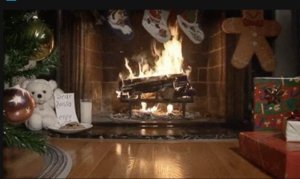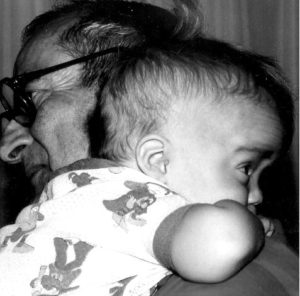What I Hope For
December 28, 2017 • 4 Comments • Posted in careers/jobs for people who are blind, memoir writing, politics, teaching memoir, writing promptsThe announcement of the final writing prompt for 2017 was met with a chorus of groans. “What I hope for?” they asked. “For what? For Christmas? When? You mean you want an essay about what I’d do if I won the lottery? Is that what you mean? The Chicago Bears winning a game this year…can I write about that?”

A hope isn’t the same as a wish, as Mel explains.
I send an email to writers after class each week to re-enforce what their assignment is, and to offer suggestions to anyone with writer’s block. The “What I Hope For” email suggested they think about something special they’ve been hoping for this holiday, or something they hope will happen in the New Year. If they wanted to take an easier route, I suggested they write about something they really hoped for as a kid. Or as a teenager. Or as a young adult. “Did you get it? Was it all you hoped for?” Orrrr, they could think about a family member, or maybe a historian, reading their essay 100 years from now. “People reading our memoirs in the 22nd Century might wonder what we were hoping for back in 2017.”
My suggestions weren’t much help. “The things I have hoped for over the years are so numerous I simply cannot pick one ‘hope’ for a 500-word essay,” Pat read out loud from her essay the next week. “The challenge to write about ‘hope’ is bigger than I expected (or hoped).”
Michele said it all in her opening line, where she hoped to not be thrown out of her Monday memoir class for not doing her assignment. “I hope for your forgiveness,” she wrote. “And since I only used 193 words, I hope it is possible to set up a savings account for 307 extra words to use in a later essay.” Another writer acknowledged in her essay that she fervently hopes and prays there is a heaven. “But I’m in no hurry to find out!”
Diana took me up on the idea of a gift she’d hoped for as a child. When she was five years old, her family spent Christmas with a farm family in Pennsylvania. She can’t remember the family’s name, or why it was that her family celebrated there, but she does remember what she hoped for that year: a doll that came in her own little suitcase. “It was a real suitcase with a latch, and you could use it as a place to store her.” Diana did get a doll for Christmas, but it wasn’t the doll she wanted. The daughter of the family she was staying with got Diana’s doll.
Looking back, Diana guesses the doll was too expensive for her family to buy for her. “I wanted to love my new doll, but I didn’t,” she wrote.
“At that age, I had no concept of money, except that we didn’t have much of it.” Diana continued her essay, describing how that experience seventy years ago changed her. “I don’t think I’ve ever wanted something that bad again, because I did not want to ever feel that disappointed again. I’m only aware of this now, as I write this essay.”
And then there’s Mel, who took the assignment as an opportunity to weigh the differences between hoping and wishing:
Hopes are not the same as wishes. The genie gives Aladdin three wishes. He doesn’t give him three hopes. Hopes are things that must develop over time. Wishes are things that can happen without any effort or preparation, no matter how impossible they seem.
Mel’s essay pointed out that older adults understand that a lot of the things they might have hoped for when they were young are not likely to happen now. “They belong in the realm of wishes, not hopes,” he said, using the dreams of a boy and a grown man as an example. “A twelve-year-old boy who is five and a half feet tall can hope that he grows to six feet. It may not be likely, but he knows from experience that it is possible,” he wrote. “On the other hand, a forty-year-old man who is six feet tall might wish that he were six foot-three, but he cannot hope for it. He knows that forty-year-old men do not have growth spurts.”
The stories of unfulfilled hopes were poignant–and left me thinking about a writing prompt for future classes: Acceptance.


